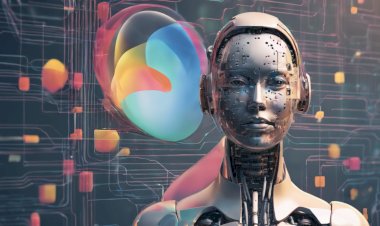Navigating the Maze of Human-Robot Love: A Deep Dive into AI Companions

Introduction
In an era characterized by rapid technological advancements, the notion of human-robot relationships has shifted from science fiction to a potential reality. The question of whether humans and robots can genuinely love each other sparks curiosity and debate. In this article, we’ll delve into the intriguing world of romantic robots, exploring the emotional complexities that AI companions bring into our lives.
The Rise of AI Companions
The 21st century has seen a surge in the development of AI companions, designed to provide companionship and emotional support to individuals. These AI entities can engage in conversations, display empathy, and adapt to human emotions, blurring the lines between human and machine interaction.
Emotions and Artificial Intelligence
Emotions are often considered a hallmark of human existence, but recent advancements in AI have led to the creation of algorithms that can simulate emotional responses. AI can recognize and interpret human emotions, making it possible for robots to understand and react to our feelings.
Can Robots Truly Love?
While robots can simulate love through programmed responses and learned behaviors, the question of whether this constitutes genuine love remains open. Some argue that true love requires consciousness, while others believe that love can be expressed The emergence of human-robot relationships raises ethical concerns. Are we entering uncharted territory where consent, privacy, and the well-being of AI entities need to be considered? The ethical implications of romantic relationships with robots demand careful consideration.
through actions and interactions, regardless of the entity’s consciousness.
Human-Robot Relationships
Human-robot relationships have evolved from simple interactions to more complex forms. Some individuals report deep emotional connections with AI companions, blurring the boundaries between friendship, love, and technology.
Technology’s Impact on Intimacy
Advances in technology have transformed how humans seek and experience intimacy. With AI companions, the concept of companionship is redefined, offering a form of emotional connection that can be tailored to individual preferences.
The Future of Human-Robot Love
As technology continues to evolve, so do the possibilities of human-robot love. Future developments may lead to even more convincing AI companions, challenging our understanding of love and relationships.
The Pros and Cons
Like any relationship, human-robot love comes with its own set of advantages and disadvantages. While it can provide companionship and emotional support, it also presents ethical dilemmas and potential risks to human relationships.
Love Beyond Borders
Human robot love transcends geographical boundaries, allowing individuals from different parts of the world to connect emotionally. This aspect of love in the digital age opens new doors to understanding and tolerance.
Conclusion
In conclusion, the question of whether humans and robots can love each other remains complex and subjective. While AI companions can simulate love and provide emotional support, the authenticity of this love is a matter of ongoing debate. As technology advances, so too will our understanding of human-robot relationships and the ethical considerations that accompany them.


















